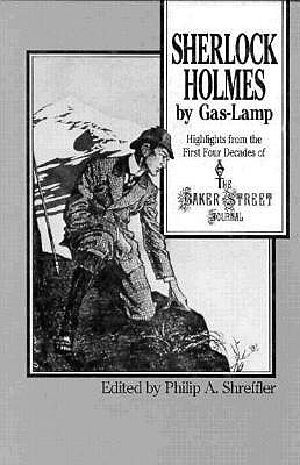Sherlock Holmes by Gas Lamp · Highlights From the First Four Decades of the Baker Street Journal

- Authors
- Shreffler, Philip A.
- Publisher
- Fordham University Press
- ISBN
- 9780823212217
- Date
- 1989-01-01T00:00:00+00:00
- Size
- 1.50 MB
- Lang
- en
Sherlock Holmes was still an undergraduate when Squire Trevor pointed out the direction of his future life's work, telling him that "all the detectives of fact and of fancy would be children in your hands." His prediction was right on the mark: so it was then, and so it remains more than a century later.
Never mind that Trevor's name wasn't really Trevor, or that Holmes hid the name of his university. Or perhaps you do mind, as so many have before you. It was such a like-minded group of people who got together in 1934 to found the world's first Sherlockian organization, The Baker Street Irregulars. With the end of the Second World War came the opportunity to found a means of publishing their studies in Sherlock Holmes and the Sherlockian world, The Baker Street Journal.
Long the first place the inquirer should look for answers to Sherlockian puzzles or the posing of new ones, The Baker Street Journal still flourishes, both as a journal of record of Sherlockian activities in America and throughout the world, and as the premier publication devoted to "the writings about the Writings" and to keeping green the memory of the world's first consulting detective.
The practitioners of the game have at their best offered learned works that they have written with their tongues planted firmly in their cheeks. Their tone has ranged from mock-heroic through the archly chiding to the playful, in prose and verse or in combinations of the two.
Sherlock Holmes by Gas-Lamp is the first time that the best of these writings has been gathered in one place.
Some of the prominent players of the game have included such luminaries in various walks of life as Christopher Morley, Franklin D. Roosevelt, T. S. Eliot, Vincent Starrett, Elmer Davis, Harry S. Truman, Franklin P. Adams, and Ellery Queen.